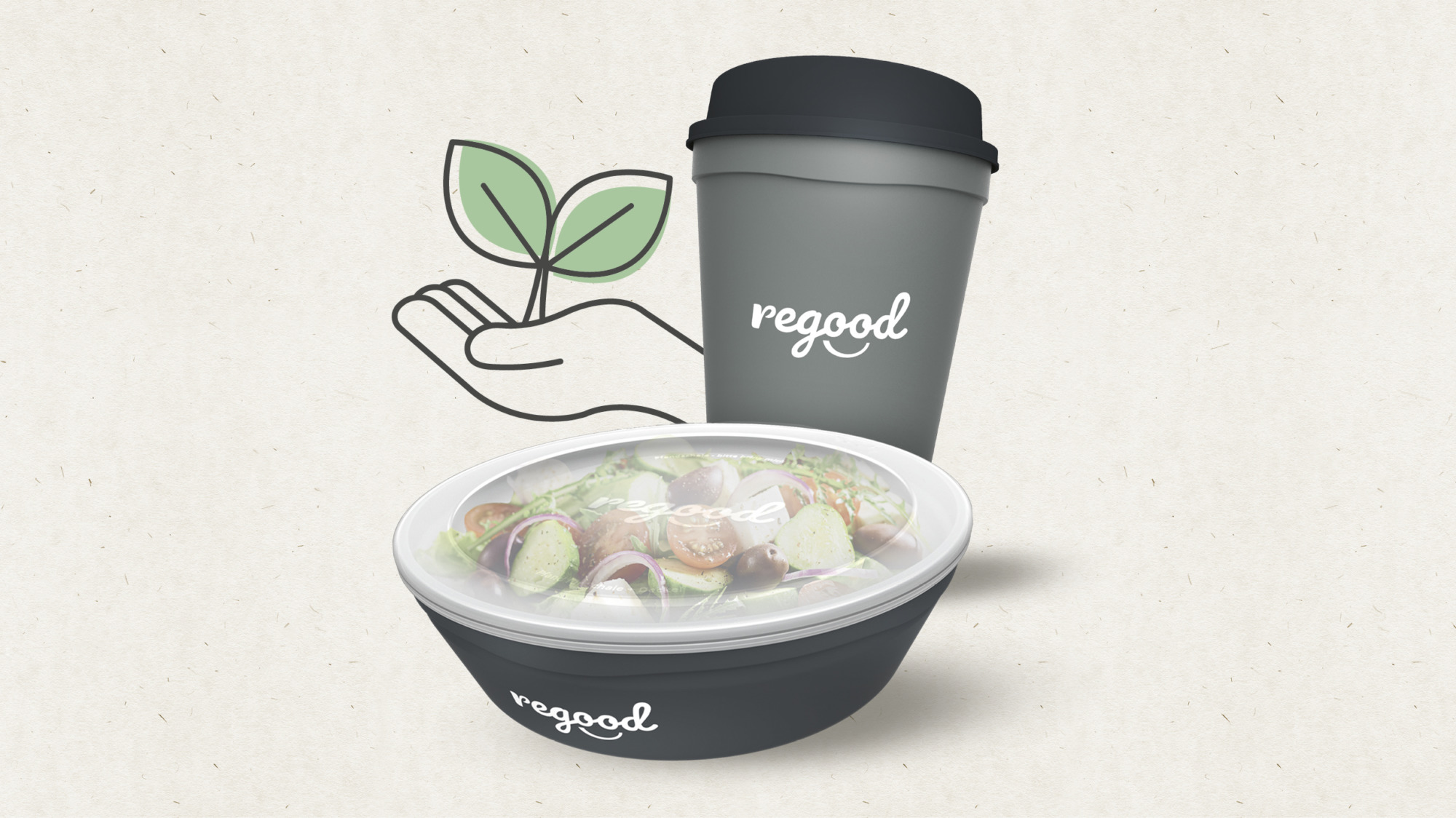The EDEKA Group is one of the largest food retailers in Germany. For its retail partners, the company is now introducing its own reusable system for out-of-home consumption under the “regood” label. EDEKA is thus responding to the legal obligation to offer reusable packaging for take-away in Germany. This also affects the retail sector with its growing convenience sector. The issue of reusable packaging is complex and involves a great deal of effort. Nevertheless, there is no way around this topic for distributors. Reusable packaging is becoming a central aspect of sustainability, the circular economy, and climate protection…
Since January 1, 2023, companies with a sales area of more than 80 square meters and more than five employees in Germany have been required to offer reusable packaging for to-go and takeaway. This also affects retailers with their steadily growing convenience sector. They must provide alternatives to the disposable plastic packaging they have been using up to now.
Two options
There are basically two options. Either you join an existing system solution or you create your own returnable system. EDEKA, as a cooperatively organized group of companies in the German retail sector, has now decided on this solution.
The regood solutions
The cups and bowls of the new reusable packaging for out-of-home consumption are marketed under the regood brand.
- The packages are offered in sizes ranging from 300 to 1200 milliliters.
- They can be used at the “hot counter”, the salad bar, the bakery store or in the catering area and, according to the company, are suitable for microwave and dishwasher use.
- As a material, EDEKA relies on recyclable monoplastic.
- The packaging is certified with the “Blue Angel” environmental seal, which certifies environmental protection through the economical use of raw materials in production and use, a long service life or sustainable disposal, and also signals harmlessness to health.
- The regood packaging comes with a deposit and can be returned to Edeka stores.
Reusable is effort
Structures have to be set up for issuing and taking back reusable containers. In the store itself, space and technology are needed for return and intermediate storage. But there are also considerable expenses for transport and logistics as well as for cleaning and disinfection.
Reusable is on the rise
Regardless of the expense, we are seeing more and more reusable solutions on the market. This is primarily due to pressure from national and European regulators. The draft for the new Packagaging and Packaging Waste Regulation presented by the EU Commission at the end of November 2022 speaks a clear language in this regard. Higher reusable quotas or even regulations for reusable packaging in certain areas will force distributors to use reusable packaging.
Far-reaching consequences
From the consumer’s point of view, it is unfavorable if each distributor uses its own system and one is tied to specific market chains for returns. These exclusive solutions create complexity for consumers, even if they are a way for retailers to retain customers. Despite this aspect, we can expect complexity and variety to be reduced on sight. We will increasingly see standard sizes and formats that function independently of individual outlets, supermarkets or discounters.

